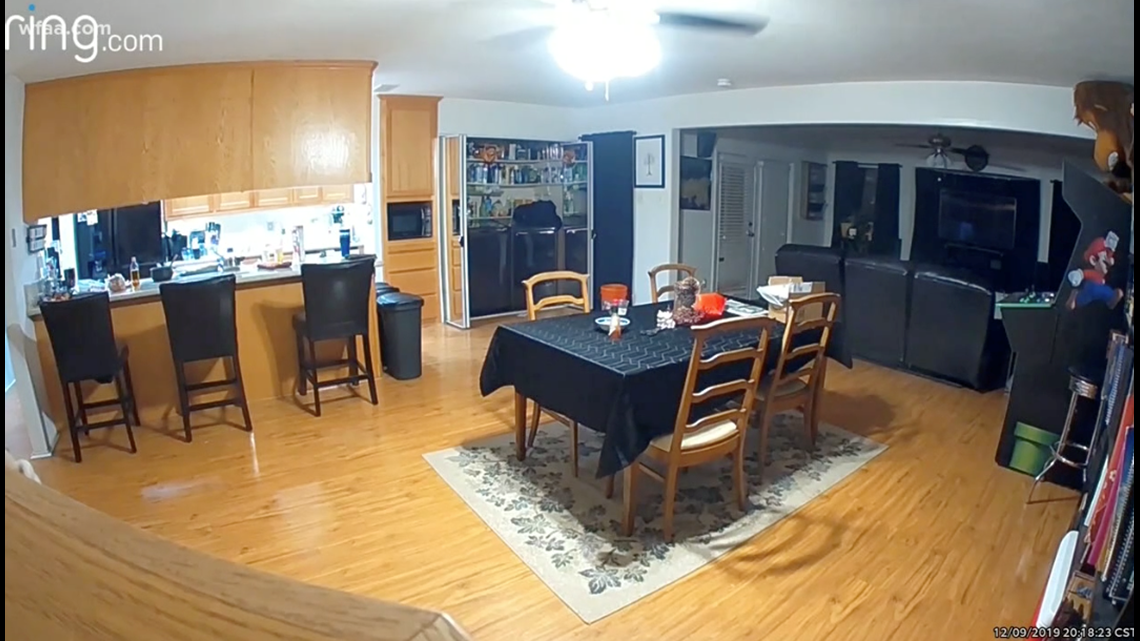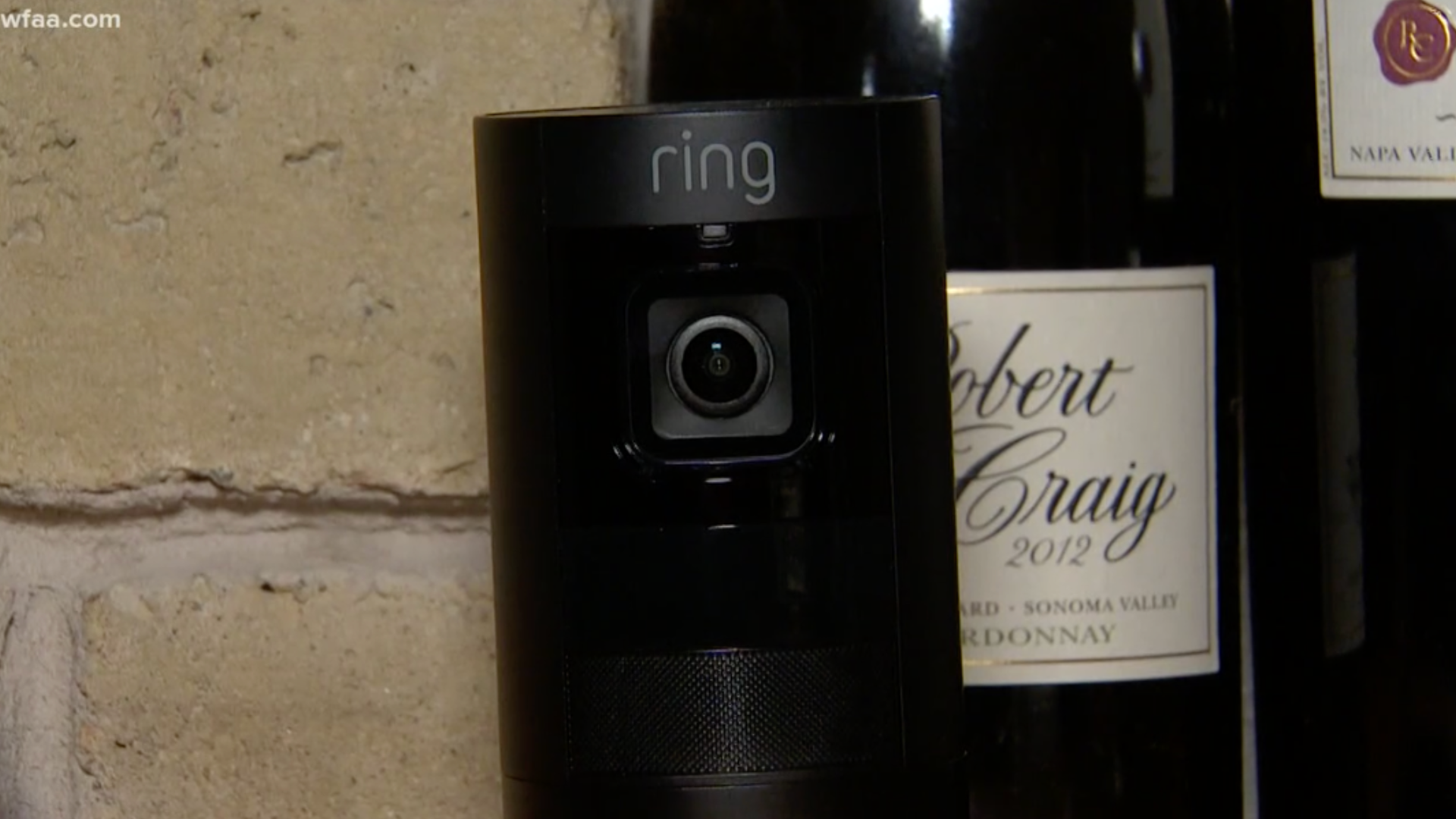GRAND PRAIRIE, Texas — A Grand Prairie couple became the newest victims to hackers via their Ring security system this week after total strangers told them to pay a ransom or "get terminated."
In just the last week, a number of disturbing Ring hack videos have surfaced online and the company is now investigating further to protect its devices and customers.
The company has a lot of ground to cover before it regains the trust of 28-year-old Tania Amador.
Amador lives in Grand Prairie with her boyfriend and on Monday she was rudely awakened by hackers who had taken over her security cameras.


She and her boyfriend pay Ring an annual fee of $100 to monitor their home and to notify police if anything suspicious is captured on camera.
"I was asleep and our Ring alarm was going off like an intruder had entered our home," Amador said. "Then we heard a voice coming from our camera."
In a video that Amador shared with WFAA, that voice can be heard laughing and then saying, "Ring support! Ring support!"
It continues in the video saying, "We would like to notify you that your account has been terminated by a hacker."
The voice then says, "Pay this 50 bitcoin ransom or you will get terminated yourself."
The hacker then accesses Amador's doorbell camera and says, "I'm outside your front door."


At the moment, Amador and her boyfriend (who is in the IT field) didn't know what was going on and just took the batteries out of her cameras that were malfunctioning.
But when they both went back to watch the videos and listen to what was being said, it became very real that their privacy was hijacked.
"Very scary to hear a threat shouted over the camera for a ransom," Amador said. "The fact that the person was watching and we don't know for how long is even scarier."
Ring is facing some tough headlines this week after a number of families reported their cameras being hacked.
In Tennessee, a Ring camera in a little girl's bedroom was hacked and the song 'Tiptoe Through the Tulips,' which is a widely recognized creepy tune associated with horror flicks, was played.
The hacker then can be heard taunting the little girl.
Then, in Florida, a hacker made racist remarks to an interracial couple in their living room.
Ring told those families, Amador and WFAA that, "During an investigation by our security team, we identified that the email address and password of one of your external accounts were exposed in a data breach. The incident we emailed you about is in no way related to a breach or compromise of Ring’s security."
Meaning, Ring's network wasn't compromised. Instead, the company said user emails and passwords gathered from a third-party data breach involving another entity or service were used to access the cameras.
Adding that, "Due to the fact that customers often use the same username and password for their various accounts and subscriptions, bad actors often re-use credentials stolen or leaked from one service on other services."
Amador finds that hard to believe because she used a specific 21-character passphrase to protect her Ring account.
One that she doesn't use for any other accounts.
Not only that, Amador said she discovered that Ring doesn't lock you out of your account after unsuccessfully typing in a password.
That, she said, could allow hackers to use an application to continually guess your password and never be stopped.
"I felt betrayed by our security company," Amador said. "I feel like we were treated like another dollar and that we didn't matter."
Amador's boyfriend filed a police report and requested all of their personal and user data from Ring, something that users are legally able to do.
They hope that information might show who accessed their camera and might be helpful to the police.
The plan now? Turn all the cameras off.
"Everything is shut off and until there is a safer alternative, we don't want to keep using Ring," Amador said. "At the time there is no trust in the company."
What can I do to protect my cameras?
Ring strongly encourages customers to enable two-factor authentication on their Ring account to thwart hackers.
That way, when you log in you won't just be asked to provide a password but also a code that is usually texted to your phone.

